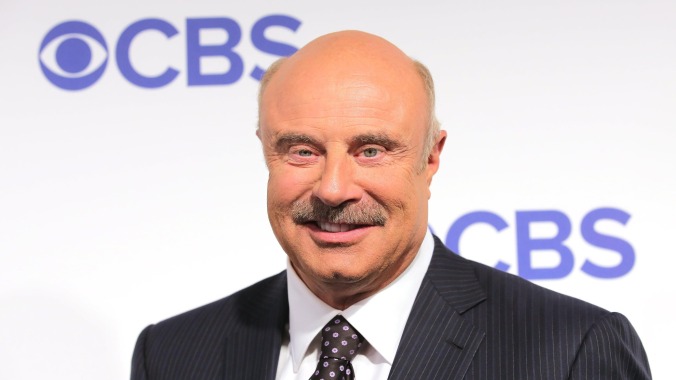Dr. Phil set described as "toxic workplace" in new report
Phil McGraw and his senior staff have denied allegations of abusive language or manipulation of guests

A new report came out today from BuzzFeed News, alleging the existence of a toxic workplace environment on long-running day-time TV series Dr. Phil. The report—written by Krystie Lee Yandoli—features allegations from a dozen former and current employees, almost all speaking anonymously, who detail instances of abusive language, unethical behavior, and general cruelty on the set of the show.
The report carries many similarities to one Yandoli wrote last year, exposing allegations of a toxic workplace at Phil’s day-time talk contemporary, The Ellen DeGeneres Show. That includes a noted lack of allegations against the high-profile host of the show, Dr. Phil McGraw, instead focusing on behavior by the senior executive producers who run the day-to-day realities of the program. (In this case, executive producer Carla Pennington, who’s accused of screaming at and berating employees, up to and including describing them using a slur for people with developmental disabilities.) There are also multiple reports of employees feeling unsafe bringing issues to the show’s HR infrastructure, claiming that anyone they brought their problems about the environment to would report on them to Pennington or McGraw.
Some of this stuff sounds like what’s becoming increasingly clear are the ugly realities of day-time TV, where the general grind, and attitudes about “how it’s done,” have often become entrenched across years of profitable, abusive behavior. But there are also specific allegations in the piece about Dr. Phil’s treatment of its guests, which get a lot darker in light of the show’s focus on mental health. These range from accusations that producers in the show’s control room regularly mock and manipulate the people who come on the series, discourage bringing on guests who aren’t white, and, in an extreme allegation, ordered production staff not to let a woman take her medication so that she’d appear more unstable on air.
For what it’s worth, the show denies pretty much everything—beyond offering up some happy (if still mostly anonymous, oddly) staffers who admit that working at the series is “intense,” but ultimately rewarding. McGraw issued a statement supporting Pennington, and Pennington’s lawyer issued a whole bunch of statements calling the story “ a work of fiction,” asserting that, “BuzzFeed’s singular focus of creating a potentially viral story came at the expense of truth and facts. BuzzFeed spent months crafting a desired narrative and curating unnamed sources to anonymously support their manufactured story.” All accounts of manipulating or mocking guests have been staunchly denied.
Which still leaves the statements of the anonymous empl0yees, who sometimes bemoaned that they weren’t making enough money to pay for therapy to recover from their jobs on an ostensibly therapeutic TV show. One ends the report on a rather grim note, asserting that, despite some hopes expressed for change on Dr. Phil, “We’ve created these kinds of monsters and they’ve gotten away with it, and so they are untouchable.”